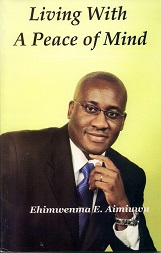 |
|
To: CNN, Dr.
Dennis Kimbro, Dr. Cornel West, Dr. Henry Louis Gates, Dr. Roland Fryer, Bishop
T. D. Jakes, Dr. Julianne Malveaux, and
Soledad O'Brien
I would like to thank CNN for
making an attempt to show the world the conditions of what it is to be Black in
the United States. After watching four hours of the documentary, I am sure that a lot of
people enjoyed it because it genuinely addressed the main problems of Black
America, but it did not address the solution to the problems.
To every folklore or story,
there is a moral to it. It is the duty of the storyteller to leave the audience
with a moral to the story no matter the variation of opinions each member of the
audience will leave with. This is where the audience needs to be served the
most, not just the story. Many Americans know that many Black problems stem
from fatherless homes, teenage pregnancy, high drop-out rates, drugs,
incarcerations, poor health care, and low income just to mention a few. The
documentary showed all these problems, but did not give a reasonable solution to
even out the socio-economic disparities between Blacks and Whites in America or
how to simply improve the social-economic conditions of Blacks.
Instead of solutions, I saw
sexism towards the Black man. He is the reason why Black women could not find
him to marry because he is not sophisticated enough to spell, work in corporate
America, and is insecure of his low income. It showed Black men to be so
irresponsible that they forget their son’s birthday, which is taking place in
their mother’s house, and have many children with many women. Also, Black men
hate school and would rather sell drugs than get a job. They did protected the
women and never ask the women why they were having babies for many different men
or why a single mother should be with five children. Like the intellectuals and
guests in the documentary pointed out, Black American problems are based upon
poor education and low income.
CNN did not stress that the
purpose of Black slavery in the United States was to use Blacks legally as free or cheap
labor to generate wealth for White America. Slavery only stopped when they
realized that it was more productive and profitable to pay a slave a little wage
for encouragement than to maintain him in bondage. So to maintain White
American wealth, despite time, civil rights, and affirmative action, it was
necessary to keep the descendants of the slave as legal cheap or free laborers.
This is the purpose of incarceration, unfair drug (crack) laws, the welfare
system, high unemployment, police brutality, and racial profiling. This is what
leads to inferiority complex, frustration, bad health, single parent homes,
drugs, low incomes, and not to mention that Blacks are the last to get hired and
the first to get laid-off or fired at work. The question is how do we get the
rest of the nation and the world to understand the conditions of the Black race,
like the feminists, gays, and Jews have done successfully, and encourage the
masses to pressurize their governments and judicial systems to address the Black
dilemma adequately. This is the purpose of cultural or social documentaries.
To make non-members of a group willingly carry the cross for another in all
walks of life. This is what Black American scholars, the media, and political
leaders are not achieving. |
|
The Political & Spiritual Purpose of the
Holy Land
 |
| |
|
We all agree from the documentary that adequate
education and better source of income for Blacks can effectively and efficiently
break the spiritual shackles of slavery that has kept Blacks as free and cheap
labors for over four hundred years, even to other minority groups and
immigrants. I must also add that this is also possible because of the way
United States laws are written and can still be referenced no matter how old and
unjust they are towards Blacks. Many towns, cities, and counties still use lots
of “old slave laws” against Blacks everyday in their courtrooms to tarnish their
social records and make it almost impossible to gain a descent wage or even turn
them to a life of crime. This is what other minorities and immigrants do not
have to worry about because the law was never written against them
specifically. They even have a better chance of improving their already
established educational culture and getting better jobs than the descendants of
free and cheap laborers of the United States. For many Blacks, education becomes
secondary when the constant and daily effort to rise above an ancient judicial
system that births low income becomes the main occupation for survival. After
all, food, health, and shelter come before education.
The purpose of this documentary should have been
to not only educate non-Blacks about the effect of slavery on Black America
after 400 years with the help of the judicial system, but always to win the
support and eliminate the apathy of other races towards our plight. This
documentary did not achieve this necessity. If America is truly interested in a
free, just, and equal society that it claims to be, it must allow the
descendants of the free and cheap laborers of over 400 years have free access to
college education for the next 100 years. This must also include the
cancellation and reimbursement of the school loans of all surviving Blacks to
date. This free college education should be a compensation for their legalized
social setback and will give them the opportunity to acquire the knowledge that
they were deprived off for so long. It will also give them a better chance to
compete for descent paying jobs and a better understanding on how to create
businesses for themselves. This effort to even out the socio-economic disparity
in America will only be effective if all of America speak out against the “old
slave laws” that empower the legal system against Blacks and demand that these
laws be abolished. |
|
|


